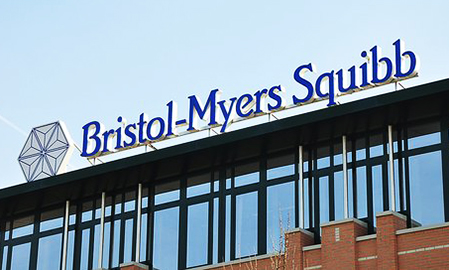In the upcoming tug-of war for sales with Merck’s Keytruda, Bristol-Myers Squibb’s immunotherapy Opdivo could benefit from inroads the drugmaker has made with the prescriber base of community oncologists, an analyst points out.
The BMS drug was approved last week, putting it in direct competition with Keytruda, whose FDA approval came in September. While it’s difficult to forecast any drug launch, especially a non-first-to-market entry (see: Eliquis), despite Keytruda’s three-month lead to the US market, Opdivo may have a competitive edge, according to an investor note by Leerink analyst Seamus Fernandez.
Some of the sales potential for the BMS drug rests on its potential for an expanded approval in lung cancer, as well as a possible indication as a first-line melanoma treatment. But the new entrant has plenty of opportunity in advanced melanoma, argues Fernandez.
First, access to both drugs is being tightly managed by payers to adhere closely to the FDA label, which sanctions use of the treatments for patients previously treated with BMS’s immuno-therapy Yervoy.
Keytruda has been most successful in academic centers as opposed to community centers, where “patient flow is shifting due to a higher degree of comfort prescribing PD1’s versus Yervoy,” the analyst wrote in a Monday note.
Opdivo’s “major advantage” over Keytruda may rest with a physician and managed-care support infrastructure for Yervoy, as BMS estimates that, of 3,500 melanoma infusion centers, 80% infuse the drug, noted Fernandez.
“BMS notes increased Yervoy share among community physicians as the driver of recent sales growth, and KOLs believe it is possible that Opdivo and Keytruda’s Yervoy-refractory labels could further increase use of Yervoy while benefiting PD1s,” he wrote.
Opdivo may also gain a leg up on its rival thanks to its potential as a first-line melanoma therapy, based on the results of the Checkmate-066 trial, which was stopped early after showing superior overall survival rates. The trial—comparing Opdivo vs. dacarbazine chemotherapy in Yervoy-naïve BRAF, wild-type advanced melanoma patients—provides the basis for expanding the drug into a first-line setting.
Such an expansion “could open access to all melanoma-treating physicians,” Fernandez observed, adding, “Even an accelerated approval in the front-line setting would afford BMS the opportunity to promote to the broader community oncologist base, including non-Yervoy prescribers. We do not see a similar label-expanding opportunity for Merck until 2015.”
BMS’s progress in approval for lung cancer, which could come early next year on the back of a impressive results from its Checkpoint 063 study, further boosts Opdivo’s outlook. “Establishing an early foothold in the broader community oncologist base, whether through a broader melanoma label and/or the addition of a third line squamous NSCLC to Opdivo’s label, in our view would be critical both in establishing physician experience and comfort with reimbursement,” he wrote.








